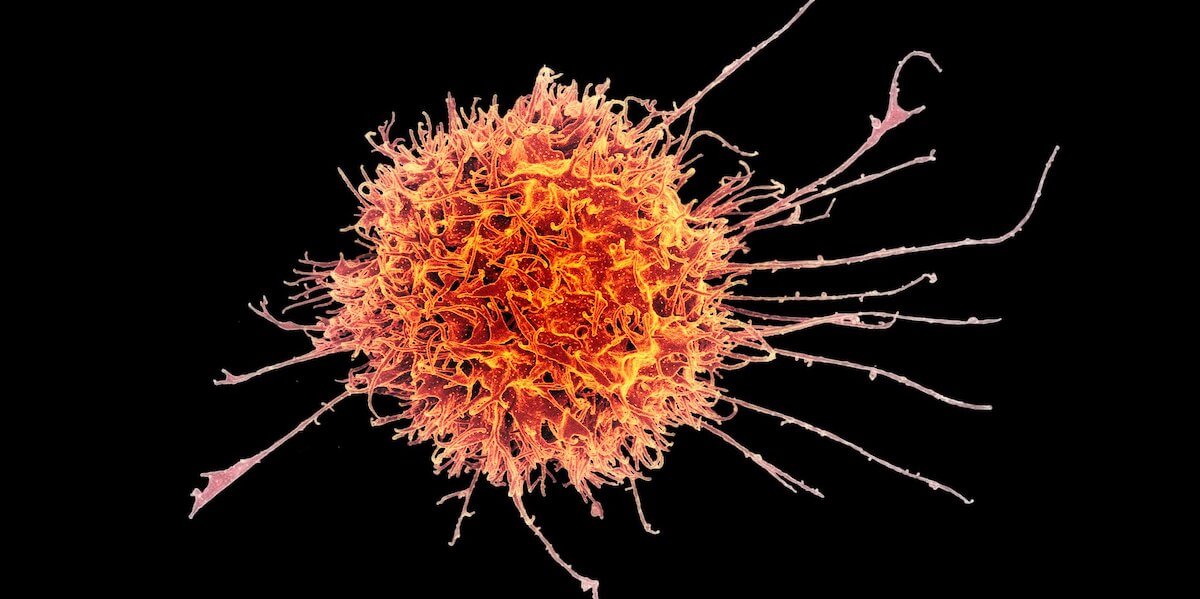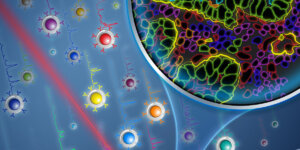
A new project will examine how the behavior of natural killer cells can be harnessed in the treatment of viral infections like COVID-19. Image/NIH
A new National Science Foundation-funded project will study the function of “natural killer cells”, a type of white blood cell that fights viral infection, to examine how they can be harnessed for successful treatments for viral infections such as COVID-19.
Natural killer cells are the human body’s first line of defense against viral infections, helping to eliminate unhealthy host cells. While these natural killer cells have been highlighted as a strong potential treatment approach for viral infections, the therapy poses significant challenges. The treatment is high-cost, the cells have a short shelf-life and there has been limited cell survival in vivo.
The new NSF project, project, awarded nearly $145,000, will look into how the natural killing properties of these cells can inform the design of stable biomimetic drug delivery methods, with the team led by Karl Jacob Jr. and Karl Jacob III Early-Career Chair Eun Ji Chung.
The results may be significant for developing novel treatment options for COVID-19 infections, as well as offering potential benefits for immunotherapy for a range of other viral infections.
Chung and her team will evaluate the natural killing properties in human-sourced cells as well as the material properties, lipid, protein and RNA membrane and carbon composition of natural killer cells’ extracellular vesicles (NKE). The researchers will then look at the anti-viral activity in cells infected with SARS-CoV-2 and assess how differences in NKE composition and materials properties influences their function.
The project will also have an education and outreach component, including recruitment, training, and mentoring of undergraduate and graduate students from diverse backgrounds. The researchers will also partner with Los Angeles’ 32nd Street School for classes and hands-on activities about bio-nanomaterials, including nanoparticle carriers in recent COVID-19 vaccines. The research team will also be involved in an annual program that will include bio-nanotechnology demonstrations at the California Science Center, and NanoPeek, a social media platform that showcases bio-nanotechnology content.
Further information on the project is available via the National Science Foundation.
Published on July 12th, 2021
Last updated on July 14th, 2021









